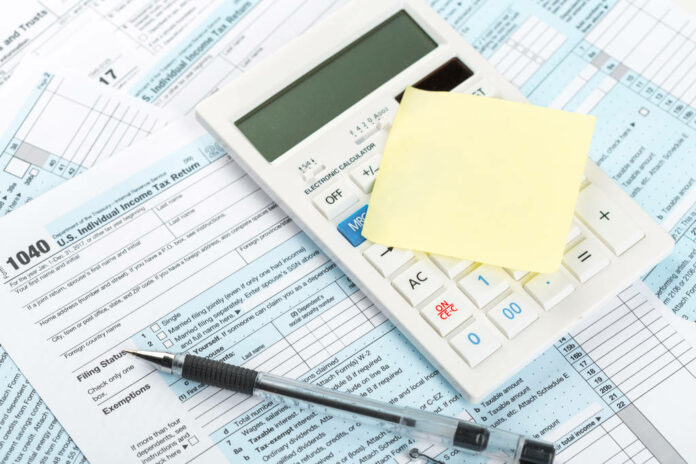What is tax?
Tax is a financial charge or other levy imposed upon a taxpayer (an individual or legal entity) by a state or the functional equivalent of a state to fund various public expenditures. A failure to pay, along with evasion of or resistance to taxation, is punishable by law. Taxes consist of direct or indirect taxes and may be paid in money or as its labor equivalent. Tax services are good to have if you want to have convenient processing of your taxes yearly.
How is tax calculated?
In the United States, federal income tax is calculated using a tax table or tax rate schedule. The tax table is a table of tax rates that apply to your taxable income. The tax rate schedule is a set of tax rates that apply to your taxable income.
To calculate your federal income tax, you first need to determine your taxable income. Taxable income is your total income from all sources, minus any adjustments or deductions. After determining your taxable income, you can use the tax table or tax rate schedule to find your tax liability.
The tax table is a table of tax rates that apply to your taxable income. The tax rate schedule is a set of tax rates that apply to your taxable income. To calculate your federal income tax, you first need to determine your taxable income. Taxable income is your total income from all sources, minus any adjustments or deductions. After determining your taxable income, you can use the tax table or tax rate schedule to find your tax liability.
The tax table is a table of tax rates that apply to your taxable income. The tax rate schedule is a set of tax rates that apply to your taxable income. To calculate your federal income tax, you first need to determine your taxable income.
What are the different types of taxes?
There are different types of taxes, and each has its own purpose. The most common types of taxes are federal, state, and local taxes.
Federal taxes are imposed by the federal government and are used to fund various programs and services. The most common federal taxes are income taxes, Social Security, and Medicare.
State taxes are imposed by state governments and are used to fund various programs and services. The most common state taxes are sales taxes, property taxes, and motor vehicle taxes.
Local taxes are imposed by local governments and are used to fund various programs and services. The most common local taxes are property taxes and sales taxes.
Who pays taxes?
The answer to this question may seem simple, but it’s actually quite complex. Individuals, businesses, and even some nonprofit organizations are required to pay taxes. The amount of taxes owed depends on many factors, including income, location, and type of business.
Individuals are generally required to pay taxes on their income, whether it’s from wages, investments, or other sources. The amount of tax owed is based on the person’s tax bracket. Businesses must also pay taxes, which are typically based on the company’s profits. Nonprofit organizations may have to pay taxes as well, depending on their size and purpose.
In the United States, the federal government collects taxes. State and local governments may also collect taxes. The money collected from taxes is used to fund public services, such as education, infrastructure, and defense.
So, who pays taxes? Ultimately, everyone does in some way or another.
What are the consequences of not paying taxes?
If you don’t pay your taxes, you could face a number of consequences, including penalties and interest, an IRS audit, and even jail time.
The first consequence of not paying your taxes is that you will owe the government money in the form of penalties and interest. The IRS charges a late payment penalty of 0.5% of the unpaid taxes for each month or part of a month that the tax remains unpaid, up to 25%. In addition, you will owe interest on unpaid taxes at a rate of 4% per year.
The second consequence of not paying your taxes is that you may be audited by the IRS. The IRS audits less than 1% of all individual tax returns, but that number goes up if you’re flagged for a number of reasons, including not paying your taxes.
The third consequence of not paying your taxes is that you could be charged with tax evasion, which is a felony. If you’re convicted of tax evasion, you could face up to 5 years in prison and a fine of up to $250,000.
Paying your taxes may not be fun, but it’s important to do to avoid some very serious consequences.









